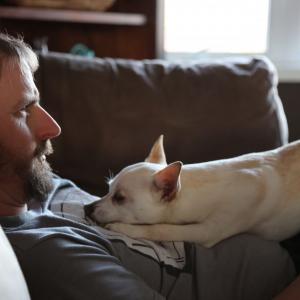Types of Anxiety: Identify The Type of Anxiety You Are Experiencing
When experiencing signs and symptoms of an anxiety disorder, as listed below, it is important to provide your doctor with as many specifics as possible so that they can diagnose you accurately and then provide a treatment plan for the specific diagnosis.
Types of Anxiety Disorders
Panic Disorder - Unpredictable attacks of anxiety that are accompanied by physiological manifestations. People with this disorder often undergo medical evaluations for symptoms related to heart attacks or other medical conditions before the diagnosis of panic disorder is made. Attacks may last from minutes to hours. An affected person often lives in fear of another attack and may be reluctant to be alone or far from medical assistance. Panic attacks can occur at any time, even during sleep. An attack generally peaks within 10 minutes, but some symptoms may last much longer.
Agoraphobia - An abnormal fear of being helpless in an embarrassing or unescapable situation that is characterized especially by the avoidance of open or public places. It may occur alone or may accompany panic disorder. People with this disorder may become housebound for years, with resulting impairment of social and interpersonal relationships.
Specific Phobias - Persistent fear of objects or situations. When these situations or objects appear, they can produce immediate and severe symptoms of anxiety.
Social Anxiety Disorder - A persistent irrational fear of situations in which the person may be closely watched and judged by others, as in public speaking, eating, or using public facilities. A person then becomes fearful of social or performance situations in which they may be subject to the scrutiny of others.
Post Traumatic Stress Disorder (PTSD) - Post-traumatic stress disorder is a psychiatric illness that can occur following a traumatic event, in which there is the threat of injury or death to you or someone else.
Obsessive Compulsive Disorder (OCD) - The person suffering from OCD uses ritualistic and repeated behaviors to rid themselves of obsessive thoughts and anxieties. Recent data show that 2-3% of people, or about 7 million Americans, suffer from this disorder.
Generalized Anxiety Disorder (GAD) - This a common condition. The disorder is characterized by excessive anxiety and worry that is out of proportion to the impact of the event or circumstance that is the focus of the worry. Persons with GAD may eventually experience other mental disorders, such as panic disorder or major depressive disorder.
A person may suffer from more than one type of anxiety at the same time.
Read what others have said about their experiences:
Panic Disorder:
"It started 10 years ago, when I had just graduated from college and started a new job. I was sitting in a business seminar in a hotel and this thing came out of the blue. I felt like I was dying."
"For me, a panic attack is almost a violent experience. I feel disconnected from reality. I feel like I'm losing control in a very extreme way. My heart pounds really hard, I feel like I can't get my breath, and there's an overwhelming feeling that things are crashing in on me."
"In between attacks there is this dread and anxiety that it's going to happen again. I'm afraid to go back to places where I've had an attack. Unless I get help, there soon won't be anyplace where I can go and feel safe from panic."
Obsessive Compulsive Disorder:
"I couldn't do anything without rituals. They invaded every aspect of my life. Counting really bogged me down. I would wash my hair three times as opposed to once because three was a good luck number and one wasn't. It took me longer to read because I'd count the lines in a paragraph. When I set my alarm at night, I had to set it to a number that wouldn't add up to a 'bad' number."
"Getting dressed in the morning was tough because I had a routine, and if I didn't follow the routine, I'd get anxious and would have to get dressed again. I always worried that if I didn't do anything, my parents were going to die. I'd have these terrible thoughts of harming my parents. That was completely irrational, but the thoughts triggered more anxiety and more senseless behavior. Because of the time I spent on rituals, I was unable to do a lot of things that were important to me."
"I knew the rituals didn't make sense, and I was deeply ashamed of them, but I couldn't seem to overcome them until I had therapy."
Post Traumatic Stress Disorder:
"I was raped when I was 25 years old. For a long time, I spoke about the rape as though it was something that happened to someone else. I was very aware that it had happened to me, but there was just no feeling."
"Then I started having flashbacks. They kind of came over me like a splash of water. I would be terrified. Suddenly I was reliving the rape. Every instant was startling. I wasn't aware of anything around me, I was in a bubble, just kind of floating. And it was scary. Having a flashback can wring you out."
"The rape happened the week before Thanksgiving, and I can't believe the anxiety and fear I feel every year around the anniversary date. It's as though I've seen a werewolf. I can't relax, can't sleep, don't want to be with anyone. I wonder whether I'll ever be free of this terrible problem."
Social Anxiety Disorder:
"In any social situation, I felt fear. I would be anxious before I even left the house, and it would escalate as I got closer to a college class, a party, or whatever. I would feel sick at my stomach-it almost felt like I had the flu. My heart would pound, my palms would get sweaty, and I would get this feeling of being removed from myself and from everybody else."
"When I would walk into a room full of people, I'd turn red and it would feel like everybody's eyes were on me. I was embarrassed to stand off in a corner by myself, but I couldn't think of anything to say to anybody. It was humiliating. I felt so clumsy, I couldn't wait to get out.
"I couldn't go on dates, and for a while I couldn't even go to class. My sophomore year of college I had to come home for a semester. I felt like such a failure."
Specific Phobias:
"I'm scared to death of flying, and I never do it anymore. I used to start dreading a plane trip a month before I was due to leave. It was an awful feeling when that airplane door closed and I felt trapped. My heart would pound and I would sweat bullets. When the airplane would start to ascend, it just reinforced the feeling that I couldn't get out. When I think about flying, I picture myself losing control, freaking out, climbing the walls, but of course I never did that. I'm not afraid of crashing or hitting turbulence. It's just that feeling of being trapped. Whenever I've thought about changing jobs, I've had to think,'Would I be under pressure to fly?' These days I only go places where I can drive or take a train. My friends always point out that I couldn't get off a train traveling at high speeds either, so why don't trains bother me? I just tell them it isn't a rational fear."
Generalized Anxiety Disorder:
"I always thought I was just a worrier. I'd feel keyed up and unable to relax. At times it would come and go, and at times it would be constant. It could go on for days. I'd worry about what I was going to fix for a dinner party, or what would be a great present for somebody. I just couldn't let something go."
"I'd have terrible sleeping problems. There were times I'd wake up wired in the middle of the night. I had trouble concentrating, even reading the newspaper or a novel. Sometimes I'd feel a little lightheaded. My heart would race or pound. And that would make me worry more. I was always imagining things were worse than they really were: when I got a stomach ache, I'd think it was an ulcer."
"When my problems were at their worst, I'd miss work and feel just terrible about it. Then I worried that I'd lose my job. My life was miserable until I got treatment."








